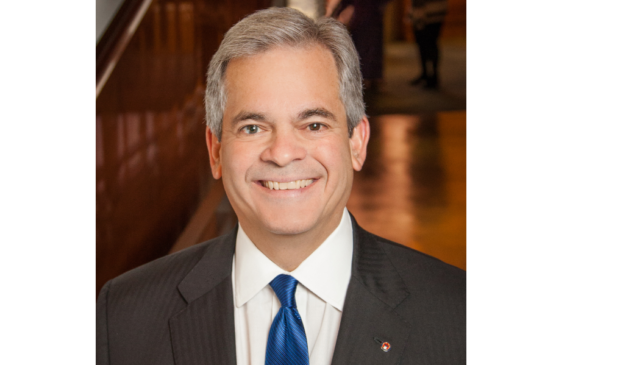Adler: 2019 saw action, and frustration, on city’s long-standing issues
Friday, January 3, 2020 by
Chad Swiatecki Looking back on 2019, Mayor Steve Adler sees a year where a series of major issues came to inflection points on which he and City Council had to take decisive action – and then face the criticism that often follows such moves.
From the June vote to decriminalize homelessness and the recent first-reading approval of the new Land Development Code that aims to increase housing density, to the recent attention caused by evidence of ongoing racism in the Austin Police Department, Adler said important issues with years of work and quiet progress in the background wound up in the spotlight.
“The race stuff with the police department obviously is a huge issue, but like with the Land Development Code where there’s been lots of incremental movement that it now looks like we’re poised to resolve, we’ve been doing a lot of equity things in the city with the Task Force on Institutional Racism and the work to lower the number of arrests for offenses that could be ticketed,” he said. “And we created the Equity Office in the city. Now with this event it seems to have focused people’s attention in a way that it had not been before. And just like with the Land Development Code, I feel like we’re poised to take a lot of the things that have been happening incrementally and drive it home.”
Other attention-getting issues last year included preparing for state-imposed limits on future property tax revenue, early work on plans to expand the Austin Convention Center, passage of affordable housing policies tied to the 2018 bond election that will provide $250 million to house low-income residents, and a new contract with the police department.
Adler said the single biggest decision all year was the June vote to decriminalize homelessness, which triggered waves of public debate. Council recently decided to purchase a hotel property and convert it into temporary housing that will be used to transition the homeless into permanent homes. He said another hotel purchase expected soon will put the city on a path to having 300 housing units that will be used to create an “equilibrium state” and gradually reduce the population of chronically homeless people.
Adler said the June vote was followed by a larger than-expected number of homeless people living more in the open without fear of penalties, which caused widespread public criticism.
“I don’t think we anticipated that many people would come out from the woods. We also didn’t anticipate there would be good Samaritans out there delivering tents,” he said. “When there’s six people under an overpass you can drive past it a thousand times, and we did without seeing there’s people in sleeping bags in those crevices, but you take those people and give them a tent and then everyone sees them. Bringing the homelessness issue to the forefront and having people see it is a good thing if it helps galvanize people. You try not to waste a good crisis. You try to make it constructive if you can.”
Looking ahead, Adler said he and other area leaders are working to prepare plans for a November vote on creation of a mass transit system. There will also need to be significant work put into deciding on budgets for the next fiscal year under the state’s new limit on property tax increases.
And Council will have to take the final steps to approve the Land Development Code, which he expects will set the table for more long-term planning needed to greatly increase the city’s housing supply and address affordability. And just like in 2019, that action will come with lots of attention and the frustration that follows all major decisions in public life.
“Where (the proposed land use code) is at right now is a real significant improvement over the existing code. Does it provide for all the affordable housing supply that we need in the city? The answer to that is no,” he said.
“Over time we’ll have to do more, but it is the appropriate place to be at. It gives us new tools, and as we go through more long-term planning we’ll be able to take more appropriate steps. That’s still lots of change and people all want the same end goal, but disagree on the way to get from here to there. You don’t want change to outpace trust and that is something we have to be cognizant of.”
Photo courtesy of the city of Austin.
The Austin Monitor’s work is made possible by donations from the community. Though our reporting covers donors from time to time, we are careful to keep business and editorial efforts separate while maintaining transparency. A complete list of donors is available here, and our code of ethics is explained here.
You're a community leader
And we’re honored you look to us for serious, in-depth news. You know a strong community needs local and dedicated watchdog reporting. We’re here for you and that won’t change. Now will you take the powerful next step and support our nonprofit news organization?








